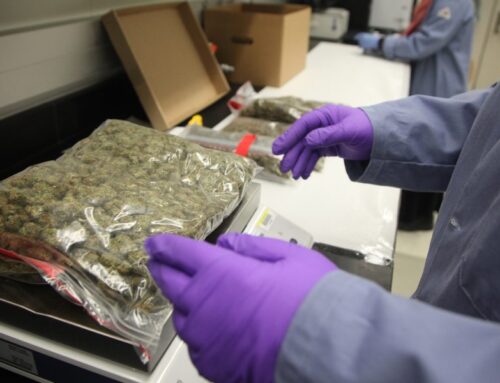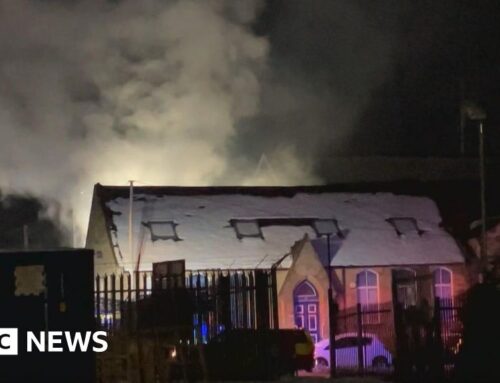What’s next for ‘climate superfund’ now that Hochul signed it into law?
January 4, 2025
Gov. Kathy Hochul has signed the Climate Change Superfund Act, but most agree that it is only the beginning of a lengthy process to get it implemented. The legislature still has to vote on chapter amendments sought by the governor, and the legislation is widely expected to face legal challenges.
The bill’s sponsor, state Sen. Liz Krueger, said a fund created – and the $3 billion that fossil fuel companies would be forced to pay into it annually for 25 years – are intended to take the burden of the state’s climate change-related costs off taxpayers.
“Why should we pick up the entire tab of the damage being done?” she said. “Right now, you and I and the other 19.5 million New Yorkers are paying those costs ourselves, and we can’t get away from it.”
The concept of “making polluters pay,” as advocates put it, is an idea the governor recently put her support behind with her signature.
“This bill, modeled in part on the successful federal superfund program will put the responsibility on the polluting entities to pay for the damages they knowingly caused,” she wrote in her approval memo.
Hochul waited until the last minute to act on the bill, giving her stamp of approval after three-way negotiations that Krueger said largely hinged on logistics.
That meant giving the state Department of Environmental Conservation more time for implementation, and addressing transparency concerns when it comes to how the money is used.
“We did agree to make changes, reflecting their legitimate concerns about how we would operationalize this,” she said.
State Sen.Tom O’Mara, who serves on the Energy Committee, is among those critical of the concept of punishing New York businesses for legal conduct.
“These were services that were provided to the public, and there was a great public need during that time period. What were our alternatives?” he said.
Krueger dismissed those concerns, citing similar federal superfund legislation and unsuccessful challenges to that action, as well as General Electric’s mandated dredging of the Hudson River in the early 2000s following decades of dumping PCBs.
“Once you discover something has happened that is damaging, particularly in environmental categories, you can hold the polluters accountable,” she said. “It’s not even the question of ‘were you doing something illegal?’ You may not have been, but we have now learned that the result of these activities was enormous environmental damage that has to be addressed.”
The law faced fierce opposition from the business community, with dozens of business groups urging Hochul to veto. Assemblymember Phil Palmesano, Ranking Member on the Energy Committee echoed those concerns.
“We are now empowering the very agency (Department of Environmental Conservation) that approved these permits for operation to penalize, assess and fine these businesses,” he said. “This is clearly an anti-business and anti-consumer law.”
O’Mara added that he doesn’t buy advocates’ assertion that ratepayers won’t feel the impact.
“If you make costs more expensive, if you charge a fee, a penalty, a tax, that gets passed on to the consumers,” he said.
Blair Horner, NYPIRG’s senior policy advisor who advocated for the bill, said economic expertise sought during the legislative process says otherwise, including a letter to the governor from Nobel Prize-winning economist and Columbia University professor Joseph Stiglitz. He argued that because some companies won’t be charged, market forces will not incentivize raising prices.
“If they wanted to raise their price, the company that doesn’t have any effect would underbid them. We as drivers would go to the cheapest gas station, so you could lose market share,” Horner said.
He added that even if that wasn’t the case, taxpayers would still be on the hook for climate-related damages either way.
The bill was the subject of relentless advocacy in the closing weeks of the legislative session and again as the governor’s window to act closed in December, including significant support from youth groups.
“The fossil fuel industry is bringing in trillions of dollars in profit year after year,” said Keanu Arpels-Josiah, 19, core organizer for Fridays For Future NYC. “It’s high time for them to pay their fair share in New York. The signing of the Climate Superfund Act, as youth across the state have advocated for year after year, is a critical step toward that.”
What most agree on is that all of this is likely to remain a topic of discussion as the law is expected to end up in court, but for now, Krueger said it’s time to focus on getting chapter amendments passed and moving toward implementation.
“We start to move along the path that we set up in our law, and we see at what time we are sued and by whom. But maybe I’m wrong and nobody sues and they just agree to pay. It’s possible,” she said.
Search
RECENT PRESS RELEASES
Related Post



